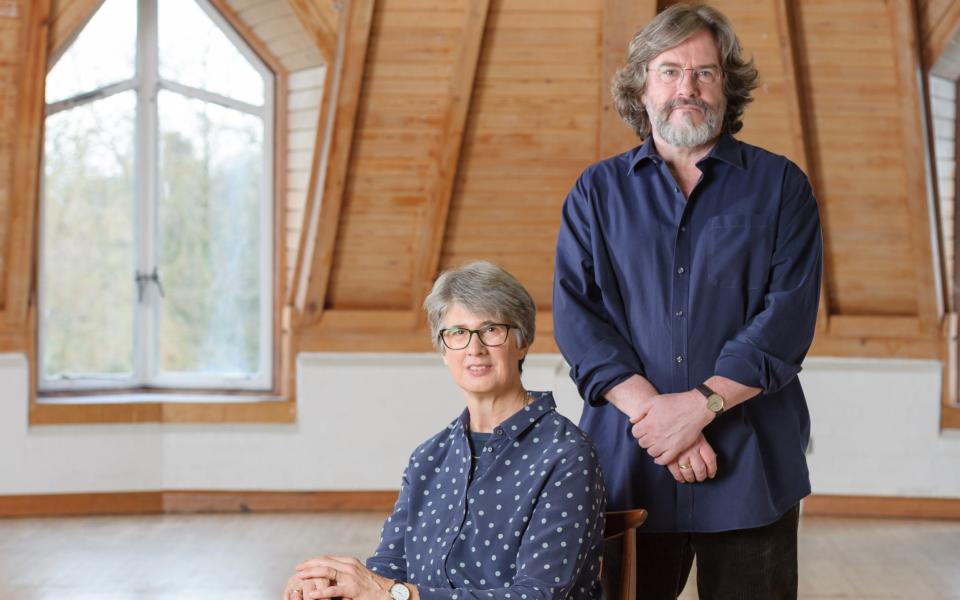The RSC on fighting back after coronavirus: 'We're now the national theatre in the regions'

The business of staging Shakespeare in Stratford-upon-Avon has never been plain sailing. But as Gregory Doran, the Royal Shakespeare Company’s artistic director, points out, one striking feature has been that since 1879 when the Shakespeare Memorial Theatre (the RSC’s precursor) came into being, Shakespeare has been staged annually in the Warwickshire town without interruption. There was only a pause for the final two years of the Great War.
“Even when the theatre burnt down in 1926, they didn’t postpone the season,” he says. “They relocated to the local cinema until the new theatre opened in 1932. It also kept going through the Second World War. During the three-year Royal Shakespeare Theatre transformation [2007-2010] we put up the Courtyard theatre and didn’t miss a beat.”
That continuity has been shattered this year thanks to Covid-19 and the closure of the theatres from mid-March. “It’s pretty much the first time for 140 years that there has been no Shakespeare in Stratford,” Doran says. Certainly the future is uncertain for his company. What was left of the Stratford summer season that was due to run to October is in effect no more. And bowing to the inevitable, Doran reveals that the RSC will not have a winter residency at the Barbican in London this year. His co-directed two-part account of the Henry VI trilogy – due to have been mounted from mid-October in the Swan – has been shunted into 2021, most likely in the autumn. The curtain has temporarily fallen, too, on the family Christmas show – The Magician’s Elephant (a musical adaptation of the novel by American author Kate DiCamillo), bumped back a whole year.
However, there is more positive news. Thus far, two of the summer season’s main-house productions – The Winter’s Tale and The Comedy of Errors – have been deferred to the autumn in the hope that they may yet have a fighting chance of opening. Doran, joined by his executive director Catherine Mallyon on a video conference call, wants this element of the announcement to offer some hope. “We think optimism is important. We want to give audiences a sense that there’s light at the end of the tunnel and we’re coming out of it.”
Mallyon points out that half The Winter’s Tale’s set is on the stage of the Royal Shakespeare Theatre, while the remainder lies in a lorry outside: “It is pretty much rehearsed, we are ready to go when it comes to it… The Comedy of Errors has had some rehearsals too.”
“We wanted to keep our acting company on because we don’t think we’re a theatre without a group of actors,” Doran affirms. “And we want to keep them in readiness to go whenever social distancing is worked out.” As things stand, government guidelines are so tight that they can’t even contemplate outdoor shows, despite the thronging riverside: “It’s illegal to encourage people to congregate so we can’t think of doing things outdoors,” he continues.

The 2m rule – as it currently stands – puts the kibosh on a full-scale indoor production. For one thing, the impact on audience size makes it a non-starter financially, Mallyon says. The situation may change, she points out: “We have come out of lockdown faster than I expected, so maybe we will be able to open earlier than expected.” But in the meantime, “we’re coming at it from the other direction – what else can we do with social distancing in place? For smaller company sizes and smaller sets you can flex the [financial] model.”
They are also contemplating stopgap projects. “We’re considering turning the RST into a cinema for a short film season of our ‘Live from Stratford-upon-Avon’ broadcasts,” Doran reveals. “As we have now filmed three quarters of the canon, we could create quite a Shakespeare Festival. It would allow audiences to try coming back, seeing how comfortable they feel in our buildings.”
The kind of distancing being planned for some cinema chains from July could be established – “Could we sell a certain number of tickets and let people sit where they want – so that if you’re a family group you can sit together? These things are live discussions, but there is a lot of work to be done before we can greenlight it as a project.”
Such a move could attract visitors back to the town – reeling from a slump in tourism. The RSC isn’t as dependent on international tourism as one might have thought – only 10 per cent come from overseas; the majority hail from a 50-mile radius.

That contrasts with the stricken Shakespeare’s Globe, one third of whose audiences are from overseas. The position of the RSC is enviable compared with its unsubsidised counterpart (and friendly rival), which last month warned a House of Commons select committee it may not survive. Yet despite having the Queen as its patron and Prince Charles as its president, £15 million a year in subsidy (with corporate sponsorship and philanthropy besides), the RSC may not be too big to fail. Some £3 million has been used from reserves of more than £7 million to stabilise the organisation; about 90 per cent of the staff are furloughed, everyone has taken a 20-30 per cent pay cut. The Chancellor confirmed on Friday that the job retention scheme will end in October – as yet there’s no exemption for the theatre sector and no package to bridge the interval between state schemes ending and theatres reopening.
Mallyon’s warning is stark. “It’s very challenging. Without the job retention scheme, we will have to use £1 million in reserves each month to keep going. The number of months is in single figures.”
The outlook for regional theatre in general is critical. The RSC is deeply connected with the wider sector, not least through having 11 associate partners. “They’re suffering really badly,” Doran states, while enthusing about the resilient online work the company has been doing with them during lockdown – including the RSC “Shakespeare club” at the Alhambra, Bradford (“having Zoom discussions on Romeo and Juliet”), storytelling sessions in Blackpool, and a project with the New Vic, outside Stoke, which has seen “RSC actors ringing older people to cheer them up”.
In addition, there has been the Homework Help initiative, allowing school pupils and older students to submit Shakespeare-related questions to its actors and alumni.
Is the RSC redefining itself at this hour of crisis?
“I think there has been a growing sense of us being ‘the national theatre in the regions’ for some time,” Doran replies. “This period has turned the spotlight on a lot of the work that we already do.”
The impact of the pandemic has been so colossal it has even changed Doran’s understanding of Shakespeare. It hit home, he says, when the UK coronavirus death toll passed 33,000 – the number who died in the 1603 plague outbreak.
“I had never put the plague as one of the reasons Shakespeare tumbles into the abyss of those tragedies of the 1600s – but now I’m convinced that the sense of anxiety and loss of moral moorings, which I had attributed to political events, the Gunpowder Plot and so on, must have owed so much to the plague.”
In 1603, plague shut the playhouses for 13 months. That’s not the duration of closure Covid-19 is expected to warrant but Doran still worries about the damage done to Shakespeare’s place in our culture should there be prolonged curtailed activity and theatre closures caused by insolvency. “I think his position could be severely challenged,” Doran says. “Our ongoing ability to treasure him as a source of inspiration and consolation is vitally important.”
That said, echoing Ben Jonson’s famous line that “[Shakespeare] was not of an age, but for all time”, he maintains that the Bard will unquestionably endure to see better days: “In the long-term – of course – he will survive. Shakespeare is incredibly robust.”
Erica Whyman’s 2018-2019 production of Romeo and Juliet will be broadcast on BBC Four on Sunday at 9pm, as part of its Culture in Quarantine programme. It and five other RSC productions can be viewed via BBC iPlayer. Further details at rsc.org.uk


